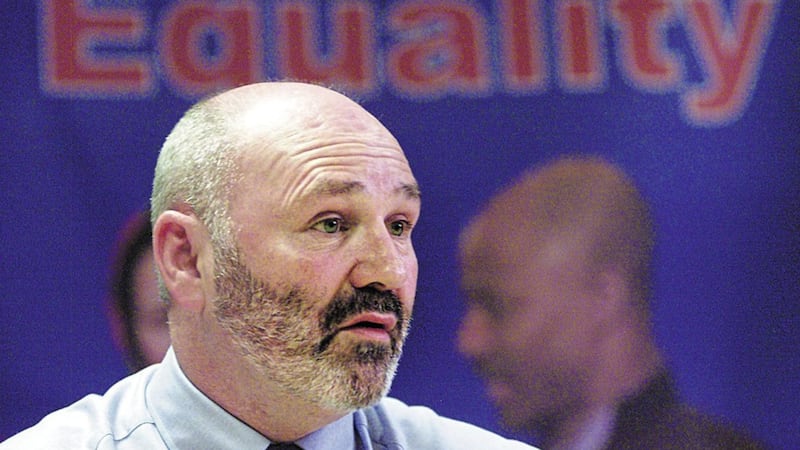Let me begin by giving Alex Maskey the benefit of the doubt and accept that he wasn't talking about the IRA campaign when he tweeted: 'Unfortunately it took more than the CRA to secure rights in the putrid little state of Northern Ireland.'
What is the 'more' he refers to? Was it the closer cooperation between the British and Irish governments and the joint agreement that any new post-Stormont settlement must embrace power-sharing and an 'Irish dimension'?
Was it intensive lobbying of the British and Irish media by key figures in the Civil Rights campaign? Was it the opening of links with successive American and Irish governments by people like John Hume?
Was it the rise of the SDLP - the most important political/electoral vehicle for nationalism since the creation of Northern Ireland in 1921? Was it the emergence of a whole new generation of young, articulate voices like John Hume, Seamus Mallon, Gerry Fitt, Austin Currie et al? Was it the growth of civil rights movements and camaraderie around the world from the mid-1960s? Was it the new found interest in Northern Ireland from the national and international media? Was it the raft of Westminster legislation on fair employment, housing, equality etc? Was it Edward Heath's removal of the 'whip' from the UUP? Was it the removal of security powers from the Stormont government? Was it the prorogation of Stormont? Was it the implosion of the Ulster Unionist political/electoral monolith?
All of these events, individually and collectively, had an enormous impact on Northern Ireland. Each one of them changed the place. Yet not one of them, not a single, solitary one of them was the consequence of Sinn Féin or IRA activity. No amount of Sinn Féin's orchestrated attempt to rewrite the history of this place - elevating themselves and minimising others - should be allowed to bury the fact that the IRA was never a freedom-fighting, rights-delivering organisation. By its own admission - the prioritising of the armalite/ballot box being a prime example - the IRA deployed terror as a very specific, brutally honed, political tool.
So it was interesting to read the letter from the Sinn Féin MLA Colm Gildernew in Monday's Irish News. He was writing about his family's involvement in the Caledon housing protest from October 1967 to May 1968. This is his conclusion: 'Many cite the Caledon eviction (May 1968) as the spark that lit the subsequent conflict. Unionist intransigence and discriminatory practices would no longer be tolerated by the nationalist/republican people and a popular uprising against unionist discrimination ensued. The state's mask had finally slipped and the nascent Civil Rights Movement mobilised the first Coalisland to Dungannon Civil Rights march on the 29th August to protest the eviction.'
I wouldn't disagree with that conclusion. Everything was changing in Northern Ireland at that moment and it was never returning to the status quo ante. There was clear evidence of the 'popular uprising' at local level; and equally clear evidence of London, Dublin and much further afield taking a new interest in what was happening here - with eyes and ears which weren't sympathetic to unionism.
What the arrival of the IRA did was distract from the real story of what was happening in Northern Ireland. It also killed off any hope that a new, energised, liberal unionism (there was also a new generation of young, articulate voices emerging to mirror what was happening in nationalism) would engage - seriously and enthusiastically - with that new nationalism. Many Protestants were living in bad housing, with poor educational standards and low employment opportunities. They had much in common with many working class Catholics and much that - in the right circumstances - would have drawn them together. The collapse of the IRA's border campaign in 1962 had seen a seedling rapprochement between elements of both communities, allowing Terence O'Neill to pursue his natural liberal instincts.
But it was not to be. Another 'moment' - like so many others since then - came and went. And yes, before anyone prepares to tweet me the question, I accept - and always have - that loyalist paramilitaries must also share the load for failure. When it comes to terrorism, I have parity of contempt.
Anyway, I think there is a broader question lying at the heart of Alex Maskey's tweet and it is this: what, exactly, did the IRA's terrorism do to make Northern Ireland a better place? What did it achieve that wasn't already achieved or under way through the peaceful efforts of others? I know that Northern Ireland was a different, difficult place in 1969, but does Alex really think that the IRA helped to make it better? Why did he and others choose that particular path in 1969? Wouldn't devoting himself to an unarmed civil rights movement - and I don't doubt his eloquence and passion - have achieved far more than the IRA ever achieved?








